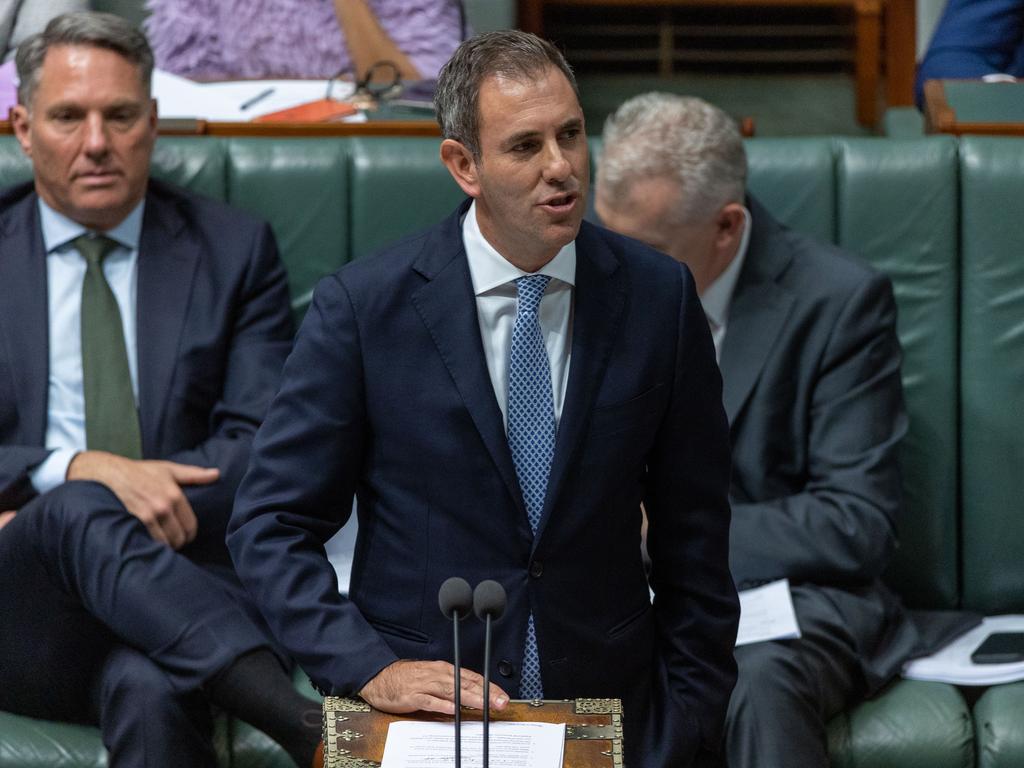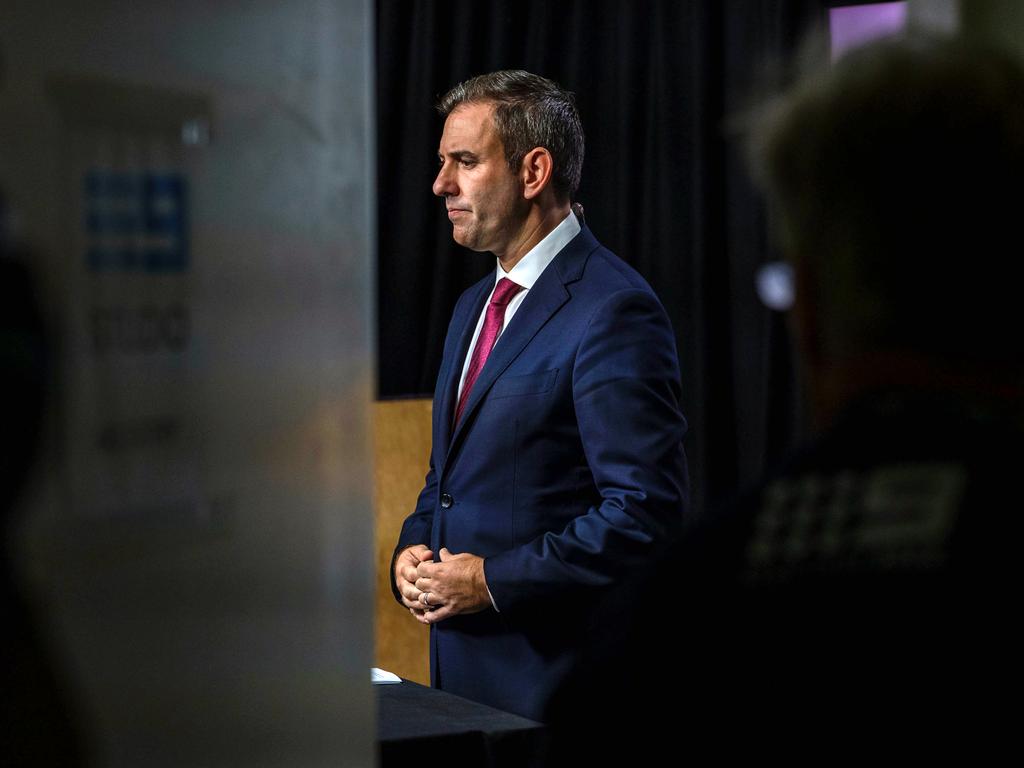Labor backs CPI-linked wage rises for low-paid
Low-paid workers should receive pay rises, the Albanese government has urged, as business warns of a recession if unions succeed in their push for a 7 per cent lift.

Hundreds of thousands of low-paid workers should receive inflation-linked pay rises, the Albanese government has urged, as business warns the economy risks being plunged into recession if unions succeed in their push for a 7 per cent increase for 2.6 million workers.
Urging the Fair Work Commission to ensure the real wages of the lowest paid “do not go backwards”, the government submission to the annual wage review will seek to limit the inflation-linked rises to workers on the national minimum wage and lowest award rates.
Employer groups said granting the ACTU’s “economically reckless” claim for a $57-a-week increase would add $12.6bn a year to employer costs.
The Australian Chamber of Commerce and Industry will urge the commission to limit the pay rise to 3.5 per cent, which at $28 a week would represent a real pay cut but be the highest ever proposed by the employer group.
In a joint statement, Treasurer Jim Chalmers and Workplace Relations Minister Tony Burke said economic conditions remained challenging, with Australians facing high inflation due to supply-chain disruptions and the war in Ukraine.
“While nominal wages growth has lifted, high inflation has seen real wages fall behind,” they said.

“This is having the greatest impact on Australia’s low-paid workers and their families – many of whom don’t have the savings to fall back on or wages that cover the rise in living costs.
“These workers are more likely to be women, under 30 years of age and employed as casuals. The government does not want to see them go backwards.”
Labor’s stand in support of low-paid workers came as the government appointed five people with union backgrounds to the commission, declaring it wanted to fix the Coalition’s “shameless stack” of the tribunal with appointees from employer backgrounds.

The wages position is similar to Labor’s submission last year, which was influential in the commission awarding a 5.2 per cent increase to the 184,000 lowest-paid workers and lower rises of 4.6 per cent, up to $40 a week, to the more than two million workers on award rates. The commonwealth submission this year will say: “The Australian government recommends that the Fair Work Commission ensures the real wages of Australia’s low-paid workers do not go backwards. Our submission does not suggest that across-the-board wages should automatically increase in line with inflation, or that inflation is the only factor the Fair Work Commission should consider.”
ACCI chief executive Andrew McKellar said the chamber’s proposed 3.5 per cent pay rise would lift the minimum wage to $841.04 a week. “Business supports a pay increase – but it must be one that is reasonable and responsible,” Mr McKellar said.
“An inflation-matching increase risks inflicting more pain on our increasingly fragile economy. An arbitrary increase to wages only means inflation and interest rates will remain higher, for longer, meaning more pain for all Australians.”
Australian Industry Group chief executive Innes Willox said awarding the ACTU claim risked plunging the economy into “the recession that we didn’t have to have”.
“Such a recession would be characterised by sharp rises in unemployment, underemployment and business failures and a reduction in business investment. It would further set back the long-awaited return to a recovery in sustainable real incomes growth in Australia,” Mr Willox said.
“With both the Reserve Bank and the federal government pledging to ‘do what it takes’ to get inflation under control, a wage rise anywhere near the 7 per cent proposed by the ACTU would raise inflationary pressures and inflationary expectations.

“This, in turn, would lift the likelihood of an additional round of interest rate rises and also raise the pressures on the federal government to slow the economy with some combination of tax hikes and cuts to spending.”
Mr Willox said inflation appeared “very likely” to have peaked in late 2022, with inflation and retail spending data this week pointing to an orderly slowing of activity and price rises.
In its initial submission, the Ai Group is not proposing a specific change to minimum-wage rates, and will nominate an amount after the May federal budget.
The ACTU said its claim was the biggest dollar amount sought but only the highest percentage amount sought since 2018 when unions pursued a 7.2 per cent rise, equivalent to $53 a week
In its submission, the Queensland government said it was committed to “economically responsible pay increases for award-reliant private sector workers and the protection of low-paid workers within the national fair work jurisdiction”. It said the “fair and reasonable” increases should take into consideration inflation and employment impacts on low-paid, award-reliant private sector workers.
The South Australian government recommended the commission “adopt a fair and balanced approach, which allows wage growth to reflect a fair share of labour productivity growth, and recognises the disproportionate impact that rising inflation is having on the cost of living for those on lower incomes”.
More Coverage









To join the conversation, please log in. Don't have an account? Register
Join the conversation, you are commenting as Logout